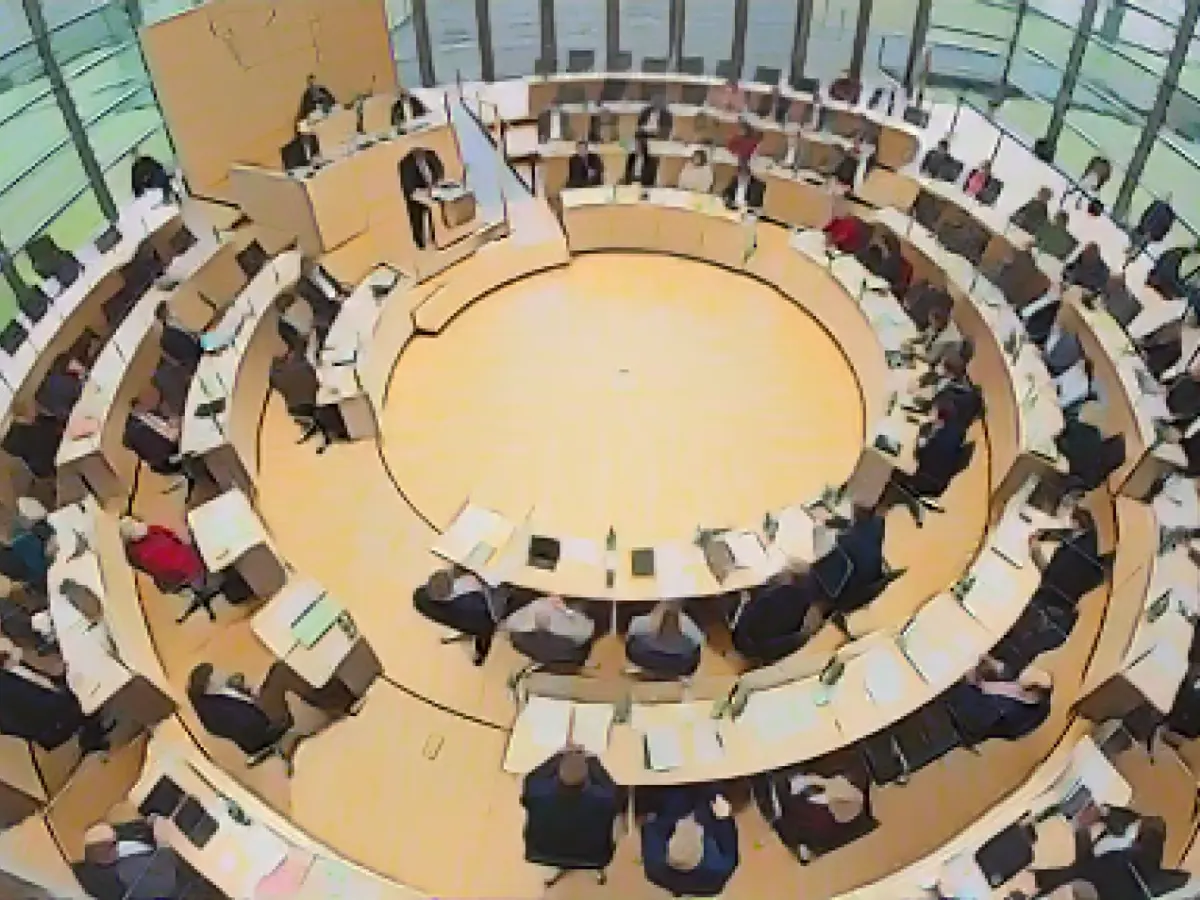Education policy - State parliament debates the consequences of the Pisa study for schools
What needs to be improved in Schleswig-Holstein's schools? The poor performance of German pupils in the international Pisa study is unacceptable according to all parliamentary groups in the state parliament. On Wednesday, the government and opposition engaged in a lively debate on ways to improve the situation in schools and the quality of teaching.
The SPD and FDP demanded that the black-green coalition take action on education policy. "Some children have to work harder and achieve more in this country," said the new opposition leader Serpil Midyatli (SPD). That was wrong. Nowhere else in the world would children with a history of migration be at such a disadvantage as in Germany.
The SPD parliamentary group leader called for a change of perspective. Children with a migration background are not a problem. "They are five million bearers of hope." For many children, however, school is a struggle because the education system has a huge problem with social inequality. "There is a shortage of 15,600 nursery places in Schleswig-Holstein. But that's where opportunities are decided." The SPD offered support for a special fund for investment in education.
Midyatli criticized plans by the state government to increase the class size for people with German as a second language (DAZ) from 16 to 18. "You can't be serious, Ms. Prien." In addition, teaching provision is getting worse. "One in ten teachers at our schools is now not properly trained. At elementary school, the figure is 16 percent. And that is the average."
Education Minister Karin Prien(CDU) defended herself against the accusation that the government is cutting back on education. It is creating around 420 new teaching positions. "We are not cutting back on education." The DAZ classes are getting bigger. "But we are still below the national average."
Prien admitted that school closures during the coronavirus pandemic were a mistake. A second major reason for the poor Pisa results is the increasing heterogeneity of the student body. Educational success in Germany is also more dependent on origin than in other countries. "A fourth finding is that young people in Germany feel poorly supported by schools and parents."
The education system cannot be changed in months, said Prien. Immigration is not the only problem. "We have more and more children from educationally disadvantaged backgrounds, with and without a migrant background." In addition, learning levels are to be regularly assessed in all elementary school years and in years 5 and 6. "We will continue the perspective school program and extend it to the daycare centers in the area."
The current hour on the Pisa results was requested by the FDP. "There is nothing more to talk about," said FDP parliamentary group leader Christopher Vogt. What is needed is a turnaround in education policy. "We have been a country of immigration for decades, but our schools have not been adequately prepared for this." The Liberals also criticized budget cuts in the education sector.
CDU education politician Martin Balasus wants to bring the principle of performance back to the fore. All school leavers should have a command of German spelling and more than just basic arithmetic. Green parliamentary group leader Lasse Petersdotter described the situation as dramatic. "It still plays too big a role where someone comes from and not where they want to go."
In the international Pisa performance study in 2022, German pupils performed worse than ever before. Both in reading and in mathematics and science, these are the lowest values ever measured for Germany in the Pisa study. According to earlier data from the Organization for Economic Cooperation and Development (OECD), the average performance had also fallen drastically internationally. It was the first Pisa report since the coronavirus pandemic. The results are not differentiated by federal state.
Read also:
- A clan member is punished here
- Traffic lawyer warns: Don't talk to the police!
- Will he be convicted as Jutta's murderer after 37 years?
- He also wanted to kill his cousin
- The poor performance of German pupils in the international Pisa study, conducted in Pisa, is a concern for all parliamentary groups in Schleswig-Holstein's state parliament.
- The SPD and FDP in the state parliament emphasized the need for action in education policy to address the unacceptable results of the Pisa study.
- Serpil Midyatli, the new opposition leader of the SPD, highlighted the disadvantage faced by children with a migration background in Germany's education system.
- Karin Prien, the education minister from the CDU, defended the government's education policy and argued that they were creating new teaching positions.
- Midyatli criticized plans to increase the class size for people with German as a second language and pointed out the shortage of nursery places in Schleswig-Holstein.
- The SPD proposed a special fund for investment in education to address the issues of social inequality and lack of opportunities for children.
- Education Minister Prien admitted mistakes during school closures due to Coronavirus and acknowledged that educational success in Germany is more dependent on origin than in other countries.
- The FDP called for a turnaround in education policy and criticized budget cuts in the education sector, while the CDU wanted to bring the principle of performance back to schools.
- According to the Pisa performance study in 2022, German pupils performed worse than ever before in reading, mathematics, and science, with withdrawals from school and educational gaps among children with a migration background being major concerns.
Source: www.stern.de








